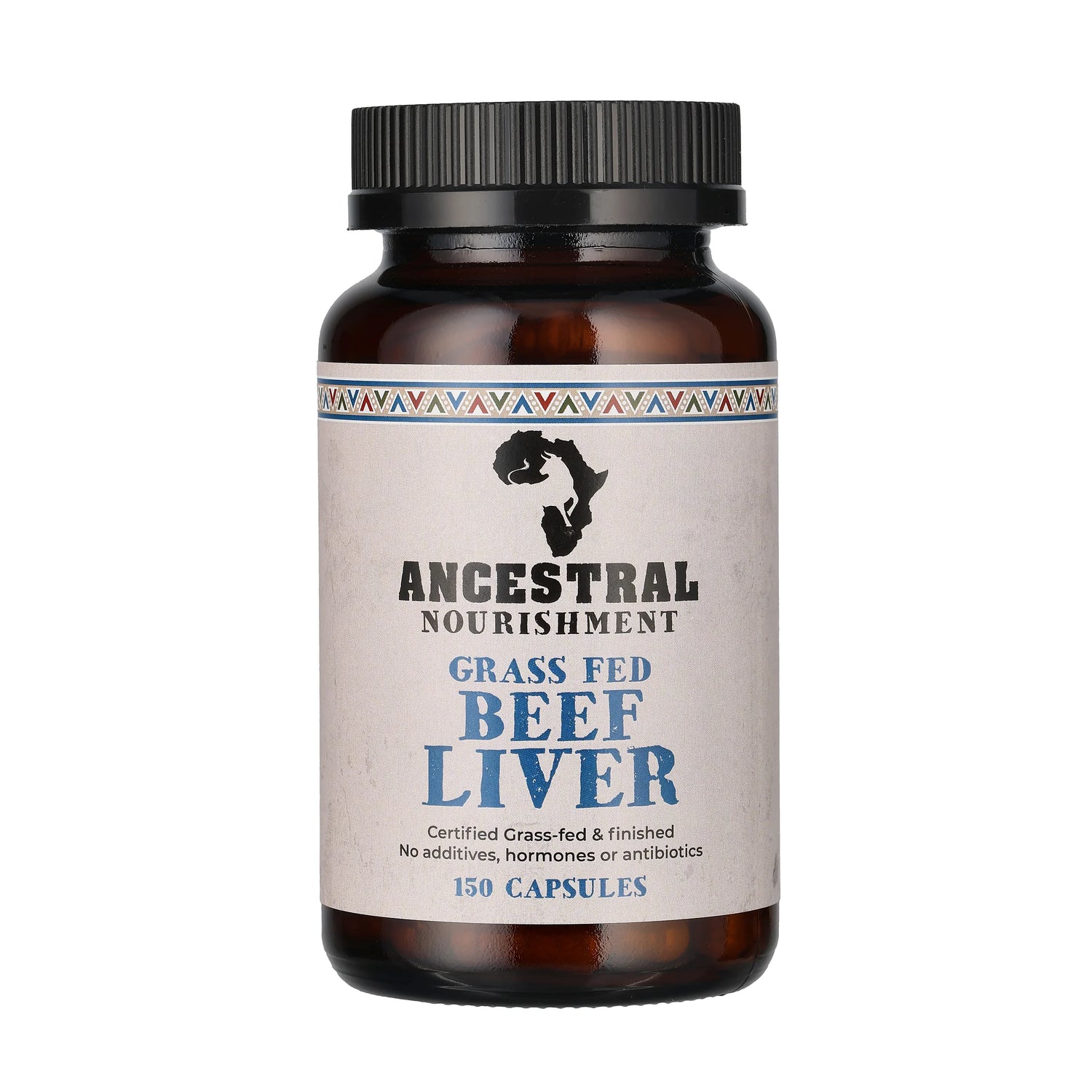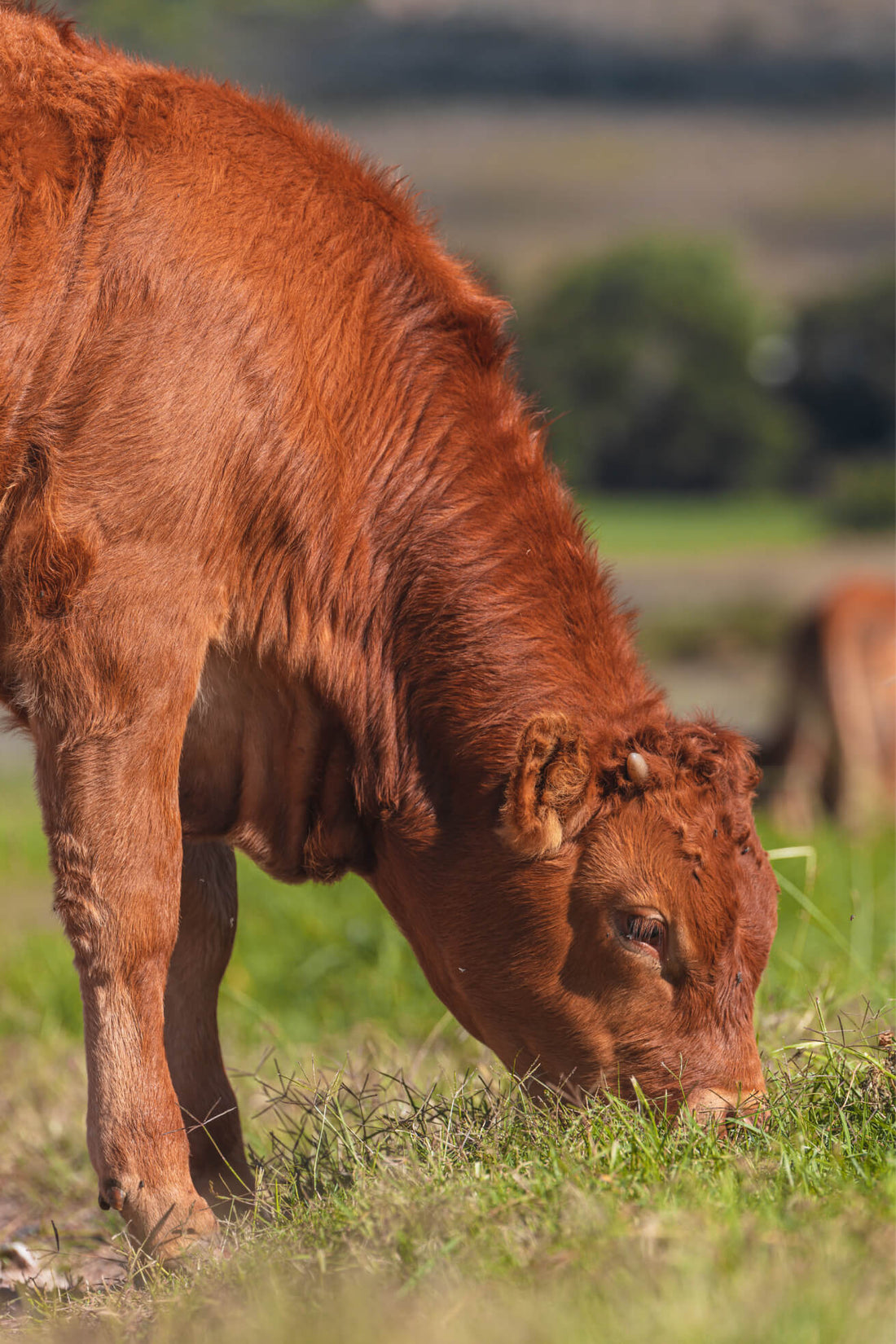Meat is Medicine: Why Our Ancestors Were Right
To heal the present, we must look at the past.
Long before the rise of modern medicine and advanced technology, our ancestors understood the importance of consuming animal-based foods for their health and survival. They hunted, fished, and gathered, consuming every part of the animal, including the organs and bone marrow. They recognized the nutrient-dense properties of each part and the significant health benefits of consuming animal-based foods.
While many modern diets have shifted away from this ancestral practice, some cultures have remained true to their dietary roots. The Inuit people of Canada and Greenland and the Masai people of Kenya have subsisted on diets rich in animal fat and protein.
If we look inside our own borders, we’re lucky enough to still have some of the world’s oldest indigenous tribes. Whether it’s the Xhosa, San, Zulu, or Afrikaner the dietary premise is the same: animal foods first.
But regardless of where these people reside, the common denominator here is that they have preserved the ways of old. And with this, comes a clear, uncoincidental pattern. These meat-based cultures have minimal rates of chronic and neurodegenerative diseases and thrive well into their old age.
Conversely, Western societies have seen a rise in chronic disease and mental health issues.
In 2019, South Africa, was ranked as one of the unhealthiest populations in the world. If you ask us, the increasing dependency on a highly-processed, nutrient-poor westernized diet is largely responsible for this alarming rise in conditions such as obesity, cancer, and heart disease.
It’s no secret that diet is a fundamental pillar of health. And the lack of key nutrients found in animal-based foods is a significant contributing factor to these health problems. It is crucial to understand that these foods are more bioavailable (absorbable) and contain key nutrients not found in the plant kingdom or anywhere else.
Yes, not only do animal foods contain superior nutrients like K2, B Vitamins, Choline and more, but our bodies absorb these better when derived from meat. In fact, one 2022 study found that the protein and peptides in chicken were consistently better absorbed than plant-based meat alternatives.
It’s also been demonstrated that traditional animal-based diets of indigenous peoples in Canada, provided more nutrients than modern diets. And when these animal-based foods were consumed, the diet was higher in key vitamins, and minerals, with a lower likelihood of heart dieasese. It also noted that the amount of traditional food consumed has decreased over time, and obesity rates among Indigenous adults in Canada have increased. Suggesting that efforts to increase the use of traditional foods are needed to promote better health.
In an article published in Sciencedirect.com, it was noted that animal foods are a necessity and missing in the diets of nearly 800 million individuals.
And according to the World Health Organization (WHO), iron deficiency is the most common nutrient deficiency in the world, affecting approximately 30% of the world's population. On top of this, deficiencies in vitamin B12, which is found almost exclusively in animal products, have been linked to anaemia, nerve damage, cognitive decline and dementia. Omega-3 fatty acids, which are primarily found in fish and other animal-based sources, have been shown to have protective effects against heart disease, stroke, and other chronic conditions. And numerous studies have also found associations between low intake of animal-based foods and increased risk of mental and chronic diseases.
Going Plant-Based is Doable, But Dangerous
Meat is not just a source of protein. It contains a plethora of key micronutrients that are only found in animal-based foods, such as choline, Vitamin K2, B-vitamins creatine, carnosine, and taurine – all of which are essential for optimal health. These nutrients are not present in the plant kingdom, and their absence can lead to deficiencies and health problems.
The replacement of nutritious animal-based foods with nutrient-poor processed foods, combined with the misguided idea that "plant-based" or "veganism" is the healthiest way to eat, is therefore a terribly misguided - and dangerous - premise.
Not to mention that the nefarious marketing masters in Big Food falsely convince the masses that anything ‘vegan’, ‘plant-based’ and ‘dairy-free’ equals healthy. The reality is, these are just buzzwords used to boost sales – and research shows that ultra-processed foods supply 37% and 40% of calories in vegetarian and vegan diets and that avoiding animal foods leads to less nutritious diet quality overall.
While it is possible to survive on a plant based diet, it is not optimal and usually leads to deficiency in key nutrients, spurring numerous health issues:
- Osteoporosis porisis
- Anaemia
- Depression
- Weakness and Fatigue
- Muscle Wastage
- Hair loss
- Weakened immune system
The majority of plant-based eaters don’t take the correct measures to supplement the range of nutrients that are largely found in animal foods. And frankly, any diet that requires one to meticulously plan to avoid nutritional gaps screams evolutionarily inappropriate and unnatural. And the consequences are evident when people choose to drop meat and organs from their lifestyle. Such as the increased risk of developing dementia in the absence of essential dietary fats needed to support the brain (read here).
Debunking ‘The Science’
There has been a long-standing myth that meat is bad for us. This myth has led to a fear of consuming meat and animal products. However, a recent analysis of observational studies found that there is no link between consuming meat and an increased risk of heart disease or cancer. They looked at six different health issues including cancer and diabetes and concluded that the overall evidence against red meat was weak at best.
One of the main problems with observational studies like this is that they rely on epidemiology, which can be problematic due to the numerous biases present. These studies do not consider other factors such as lifestyle, genetics, and environmental toxins, which can have a significant impact on health outcomes. In short, correlation does not equal causation. And while these studies can be a good starting point from which to test hypotheses, it’s irresponsible and unethical to jump the gun and draw conclusions that have such ramifications on health.
So far, there are no interventional studies to date that have shown adding unprocessed meat leads to worse health outcomes (If you find any – let us know!). In fact, all we have seen so far are positive outcomes. For instance, this study showed improved health markers and body composition in obese women who consumed a high-protein, low-carb diet. While another 2019 study demonstrated ZERO benefits to reducing red meat intake on glucose, lipid metabolism, body fat distribution and liver fat content – contradicting the claim that red meat increases the risk of type 2 diabetes.
But if we insist on playing the ‘epidemiology game’. We can find numerous longitudinal-type studies within high meat-eating populations. For instance, Hong Kong is a population that has one of the highest meat consumption rates per capita. Yet, in 2018, they were found to have the highest life expectancy in the world.
However, Quality Matters
It is important to note that not all meat is created equal. The grass-fed and finished meat is a much healthier option than meat from feedlots. Grass-fed meat is higher in omega-3 fatty acids, conjugated linoleic acid (CLA), and antioxidants, which have numerous health benefits, including reducing inflammation, improving heart health, and reducing the risk of cancer. What many don’t know is that grass-fed and finished beef and milk is also rich in various phytonutrients due to the fact that cows consume the plant matter that contains them (see how this natural cycle works?!).
Grass-fed meat is also free from antibiotics and hormones, which are commonly used in feedlot meat. In addition, grass-fed and finished meat has been found to have a better fatty acid profile, with a higher ratio of omega-3 to omega-6 fatty acids.
Final Thoughts
As we reflect on our ancestral history and the importance of consuming animal-based foods, it is clear that meat is medicine. Our ancestors were onto something, and modern research is now supporting this idea. Eating a diet rich in animal-based foods can provide us with the key nutrients we need for optimal health and can reduce the risk of chronic diseases.
It's time to put aside the misguided idea that meat is bad for us and start embracing the health benefits of consuming an evolutionarily appropriate diet. If we are to heal the nation we need to reconnect with the past and learn from the cultures that have remained true to how we lived before mass Westernization.
However, quality matters. Choose grass-fed and finished meat whenever possible, and remember that muscle meat alone is not enough to cover your micronutrient needs. Our ancestors ate nose-to-tail and incorporating organs is an absolutely essential component of this way of life. This is the reason we source high-quality grass-fed and finished organs here at Ancestral Nourishment – packing all the dietary wisdom inside each and every capsule.




